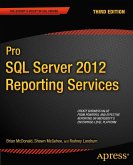Executing Data Quality Projects: Ten Steps to Quality Data and Trusted Information (TM) presents a systematic, proven approach to improving and creating data and information quality within the enterprise.
Recent studies show that data quality problems are costing businesses billions of dollars each year, with poor data linked to waste and inefficiency, damaged credibility among customers and suppliers, and an organizational inability to make sound decisions.
This book describes a Ten Step approach that combines a conceptual framework for understanding information quality with the tools, techniques, and instructions for improving and creating information quality. It includes numerous templates, detailed examples, and practical advice for executing every step of the approach. It allows for quick reference with an easy-to-use format highlighting key concepts and definitions, important checkpoints, communication activities, and best practices.
The author'strademarked approach, in which she has trained Fortune 500 clients and hundreds of workshop attendees, applies to all types of data and all types of organizations.
Includes numerous templates, detailed examples, and practical advice for executing every step of The Ten Steps approach Allows for quick reference with an easy-to-use format highlighting key concepts and definitions, important checkpoints, communication activities, and best practices A companion Web site includes links to numerous data quality resources, including many of the planning and information-gathering templates featured in the text, quick summaries of key ideas from The Ten Step methodology, and other tools and information that is available online
Hinweis: Dieser Artikel kann nur an eine deutsche Lieferadresse ausgeliefert werden.
Recent studies show that data quality problems are costing businesses billions of dollars each year, with poor data linked to waste and inefficiency, damaged credibility among customers and suppliers, and an organizational inability to make sound decisions.
This book describes a Ten Step approach that combines a conceptual framework for understanding information quality with the tools, techniques, and instructions for improving and creating information quality. It includes numerous templates, detailed examples, and practical advice for executing every step of the approach. It allows for quick reference with an easy-to-use format highlighting key concepts and definitions, important checkpoints, communication activities, and best practices.
The author'strademarked approach, in which she has trained Fortune 500 clients and hundreds of workshop attendees, applies to all types of data and all types of organizations.
Includes numerous templates, detailed examples, and practical advice for executing every step of The Ten Steps approach Allows for quick reference with an easy-to-use format highlighting key concepts and definitions, important checkpoints, communication activities, and best practices A companion Web site includes links to numerous data quality resources, including many of the planning and information-gathering templates featured in the text, quick summaries of key ideas from The Ten Step methodology, and other tools and information that is available online
Hinweis: Dieser Artikel kann nur an eine deutsche Lieferadresse ausgeliefert werden.
My esteemed colleague describes a practical approach for planning and managing information quality. I recommend you read, understand, and apply the learnings found here.
- Larry P. English, President and Principal, Information Impact International, creator of the TIQM Quality System. Conceiver and co-Founder of the International Association for Information and Data Quality
In a subject that is long on talk and short on practical advice for implementation, Danette McGilvray is a refreshing exception. If you want to know HOW to execute data quality projects, read this book -- everything you need to know is in here.
- David Plotkin, Data Quality Manager, California State Automobile Association
This book is a gem. Tested, validated and polished over a distinguished career as a practitioner and consultant, Danette's Ten Steps methodology shines as a unique and much needed contribution to the information quality discipline. This practical and insightful book will quickly become the reference of choice for all those leading or participating in information quality improvement projects. Experienced project managers will use it to update and deepen their knowledge, new ones will use it as a roadmap to quickly become effective. Managers in organizations that have embraced generic improvement methodologies such as six sigma, lean or have developed internal ones would be wise to hand this book to their Black Belts and other improvement leaders.
- C. Lwanga Yonke, Information Quality Practitioner.
Danette's book takes a pragmatic and practical approach to achieving the desired state of data quality within an organization. It is a "must-read" for any organization starting out on the road to data quality.
- Susan Stewart Goubeaux, Director, Business Intelligence, FHLBanks Office of Finance
"Data quality" has become one of those hackneyed phrases in our industry that everyone supports, but only a few organizations have achieved to the degree they need to move forward in their industries. What is required is a guide to explain to the business people who want better data just how to get it. This book is just such a guide. While the individual steps should not be a great surprise, her organization makes them immediately actionable to a degree previous books have not. In short, this is definitely required reading for anyone embarking on a data quality project.
- David Hay, President, Essential Strategies
Danette has taken what has previously been presented in the abstract and made an excellent, concrete guide toward improving data quality.
- John Ladley, President of IMCue Solutions
Using this methodology, you will never lose your way on your data quality project! This book is peppered with tips, guidelines, templates, cross-references, and call-out icons. Plus, there are many easy-to-follow examples for the most common types of data quality projects.
- Larissa T. Moss, President, Method Focus Inc.
This book presents a valuable reference for not just data professionals, but also project managers and business representatives interested in or responsible for establishing, maintaining, and/or improving data and information quality. What sets this book apart from others in the field is the business impact-driven approach to assessing and improving data quality, and the specific steps and techniques it provides every step of the way.
- Mehmet Orun, Senior Manager / Principal Architect, Data Services CoE, Fortune 250 Company
"Comprehensive" is the first word I would use to describe this book. It addresses so many nuances of every aspect of data quality assessment and improvement--things that would go unmentioned by more superficial treatments. Bravo!
- Michael Scofield, Manager, Data Asset Development, ESRI, Inc.
This book is a "must-own" for business and technical data quality managers and practitioners. Danette clearly demonstrates where her process will add value to quality projects that stand-alone or as the backbone of a successful data integration effort.
- Robert S. Seiner, KIK Consulting & Educational Services, LLC, The Data Administration Newsletter, LLC
Danette's writing style is appropriate for her audience, the content is superb, and her Ten Steps approach is clear, easy to follow but comprehensive. This is an excellent book and I would think it will be an essential reference for any effort in data quality.
- Anne Marie Smith, PhD., Director of Education and Principal Consultant, EWSolutions, Inc.
Danette has compiled a valuable toolkit for managing information quality improvement projects. Her clear, concise definitions of concepts also make it a nice primer on the principles of information quality for data professionals, business managers, or students. I would recommend this practical handbook to anyone embarking on an information quality project.
- Eva Smith, MSIM, CCP, CDMP, Instructor, Computer Information Systems
No two data quality projects are the same. Some are large efforts focused entirely on improving some quality aspect of information. Others are subprojects within other efforts, such as a data migration. Still others are led by a few individuals trying to make a difference as they perform their everyday activities. What I like about McGilvray's Ten Steps approach is that it can serve any of these situations. This book provides a structured, easy-to-understand, and easy-to-govern methodology that you can apply to the degree that is appropriate for you.
- Gwen Thomas, President, The Data Governance Institute
- Larry P. English, President and Principal, Information Impact International, creator of the TIQM Quality System. Conceiver and co-Founder of the International Association for Information and Data Quality
In a subject that is long on talk and short on practical advice for implementation, Danette McGilvray is a refreshing exception. If you want to know HOW to execute data quality projects, read this book -- everything you need to know is in here.
- David Plotkin, Data Quality Manager, California State Automobile Association
This book is a gem. Tested, validated and polished over a distinguished career as a practitioner and consultant, Danette's Ten Steps methodology shines as a unique and much needed contribution to the information quality discipline. This practical and insightful book will quickly become the reference of choice for all those leading or participating in information quality improvement projects. Experienced project managers will use it to update and deepen their knowledge, new ones will use it as a roadmap to quickly become effective. Managers in organizations that have embraced generic improvement methodologies such as six sigma, lean or have developed internal ones would be wise to hand this book to their Black Belts and other improvement leaders.
- C. Lwanga Yonke, Information Quality Practitioner.
Danette's book takes a pragmatic and practical approach to achieving the desired state of data quality within an organization. It is a "must-read" for any organization starting out on the road to data quality.
- Susan Stewart Goubeaux, Director, Business Intelligence, FHLBanks Office of Finance
"Data quality" has become one of those hackneyed phrases in our industry that everyone supports, but only a few organizations have achieved to the degree they need to move forward in their industries. What is required is a guide to explain to the business people who want better data just how to get it. This book is just such a guide. While the individual steps should not be a great surprise, her organization makes them immediately actionable to a degree previous books have not. In short, this is definitely required reading for anyone embarking on a data quality project.
- David Hay, President, Essential Strategies
Danette has taken what has previously been presented in the abstract and made an excellent, concrete guide toward improving data quality.
- John Ladley, President of IMCue Solutions
Using this methodology, you will never lose your way on your data quality project! This book is peppered with tips, guidelines, templates, cross-references, and call-out icons. Plus, there are many easy-to-follow examples for the most common types of data quality projects.
- Larissa T. Moss, President, Method Focus Inc.
This book presents a valuable reference for not just data professionals, but also project managers and business representatives interested in or responsible for establishing, maintaining, and/or improving data and information quality. What sets this book apart from others in the field is the business impact-driven approach to assessing and improving data quality, and the specific steps and techniques it provides every step of the way.
- Mehmet Orun, Senior Manager / Principal Architect, Data Services CoE, Fortune 250 Company
"Comprehensive" is the first word I would use to describe this book. It addresses so many nuances of every aspect of data quality assessment and improvement--things that would go unmentioned by more superficial treatments. Bravo!
- Michael Scofield, Manager, Data Asset Development, ESRI, Inc.
This book is a "must-own" for business and technical data quality managers and practitioners. Danette clearly demonstrates where her process will add value to quality projects that stand-alone or as the backbone of a successful data integration effort.
- Robert S. Seiner, KIK Consulting & Educational Services, LLC, The Data Administration Newsletter, LLC
Danette's writing style is appropriate for her audience, the content is superb, and her Ten Steps approach is clear, easy to follow but comprehensive. This is an excellent book and I would think it will be an essential reference for any effort in data quality.
- Anne Marie Smith, PhD., Director of Education and Principal Consultant, EWSolutions, Inc.
Danette has compiled a valuable toolkit for managing information quality improvement projects. Her clear, concise definitions of concepts also make it a nice primer on the principles of information quality for data professionals, business managers, or students. I would recommend this practical handbook to anyone embarking on an information quality project.
- Eva Smith, MSIM, CCP, CDMP, Instructor, Computer Information Systems
No two data quality projects are the same. Some are large efforts focused entirely on improving some quality aspect of information. Others are subprojects within other efforts, such as a data migration. Still others are led by a few individuals trying to make a difference as they perform their everyday activities. What I like about McGilvray's Ten Steps approach is that it can serve any of these situations. This book provides a structured, easy-to-understand, and easy-to-govern methodology that you can apply to the degree that is appropriate for you.
- Gwen Thomas, President, The Data Governance Institute








